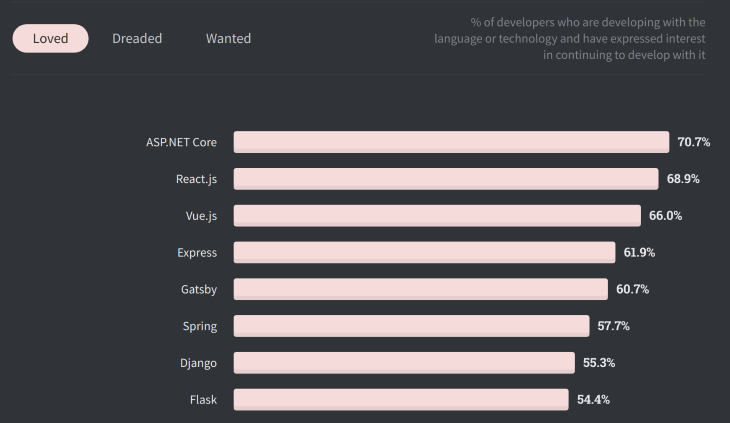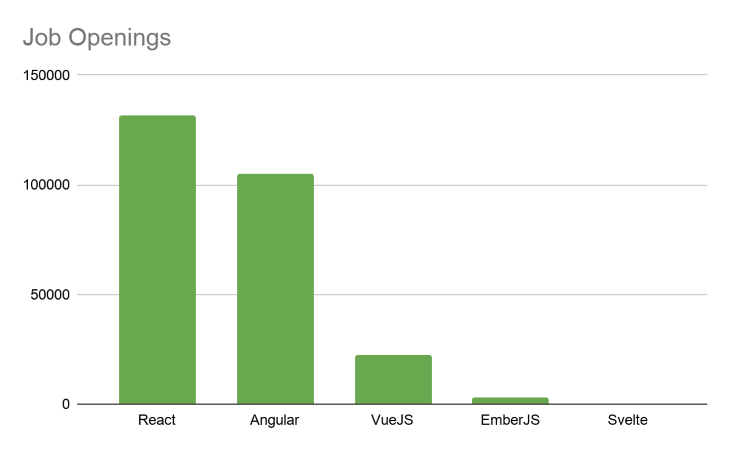React was created and open-sourced in 2013 by Facebook based upon the idea of having a JavaScript library for building web applications. Since then, it has grown significantly.

But now, the competition has changed significantly, thanks to the introduction of new libraries or versions of Angular, Vue, and others — which raises the question: should we still build products with React in 2021?
Personally, I believe that React has a great future, and that you should start (or continue using) it in your projects. Here’s why.
I want to address why React is a great technology to build web applications and why you should consider it for your next project if you are not using it already.

So far, we covered some of the elements that make React an excellent choice from a product perspective, but what does React mean for web developers?

As seen in the survey results, React sits on top as the second most loved and wanted web framework, and first as the most wanted and loved front-end framework. We also observed similar results on the Jetbrains’ State of Developer Ecosystem 2020, where React places as the number one JS framework for 2020.

Although we have covered some of the most critical points already, there are some noteworthy criticisms I would like to address separately.
React still is a solid choice for 2021 and the future. The library, its ecosystem, and community continue to grow and evolve to stay relevant as web technologies advance. Other libraries will perhaps catch up with React in the next few years, but ultimately, React is still king.
Thanks for reading!
Install LogRocket via npm or script tag. LogRocket.init() must be called client-side, not
server-side
$ npm i --save logrocket
// Code:
import LogRocket from 'logrocket';
LogRocket.init('app/id');
// Add to your HTML:
<script src="https://cdn.lr-ingest.com/LogRocket.min.js"></script>
<script>window.LogRocket && window.LogRocket.init('app/id');</script>
Hey there, want to help make our blog better?
Join LogRocket’s Content Advisory Board. You’ll help inform the type of content we create and get access to exclusive meetups, social accreditation, and swag.
Sign up now
<selectedcontent> element improves dropdowns

Learn how to implement an advanced caching layer in a Node.js app using Valkey, a high-performance, Redis-compatible in-memory datastore.

Learn how to properly handle rejected promises in TypeScript using Angular, with tips for retry logic, typed results, and avoiding unhandled exceptions.

AI’s not just following orders anymore. If you’re building the frontend, here’s how to design interfaces that actually understand your agent’s smarts.